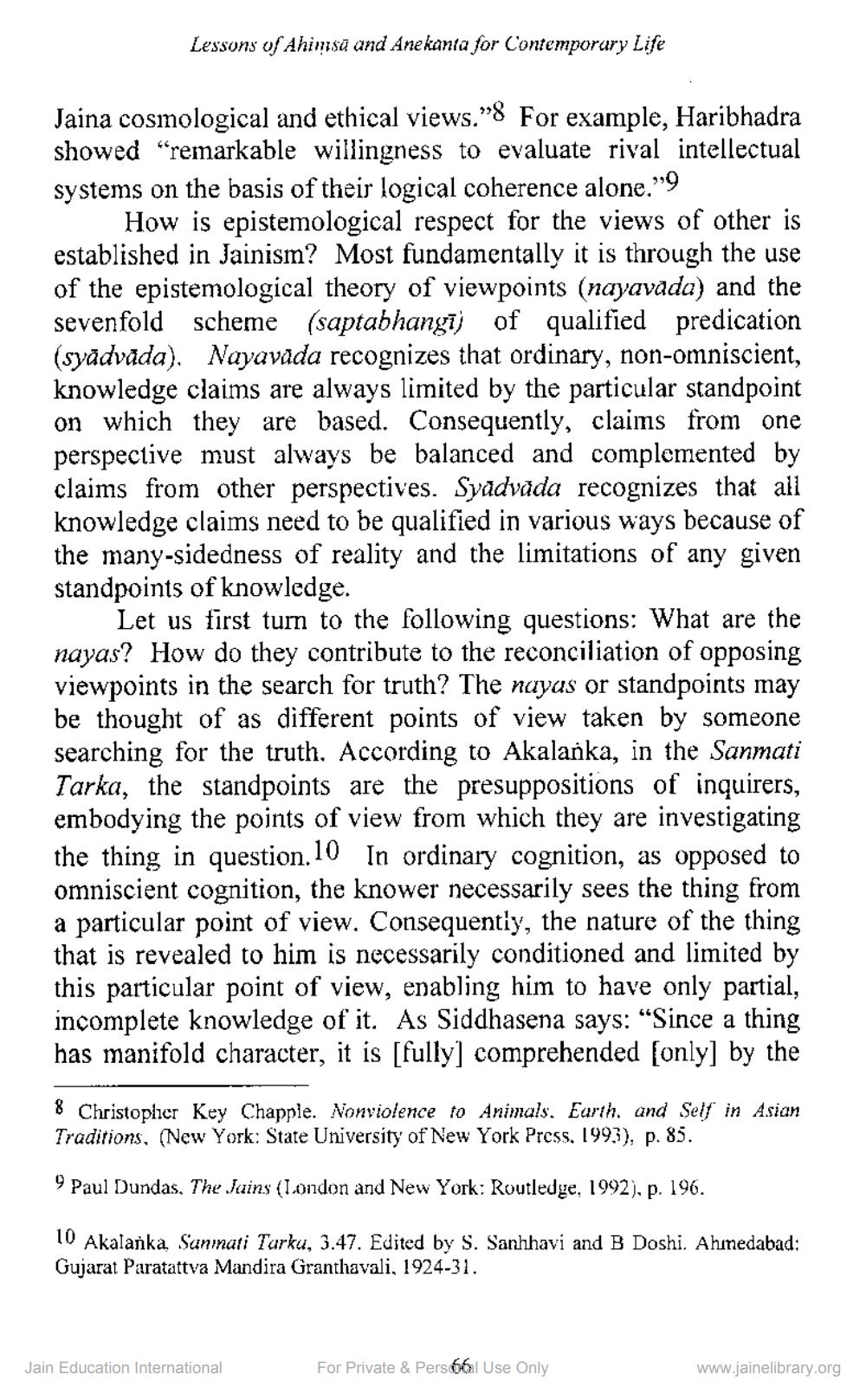________________
Lessons of Ahimsa and Anekanta for Contemporary Life
Jaina cosmological and ethical views.'8 For example, Haribhadra showed "remarkable willingness to evaluate rival intellectual systems on the basis of their logical coherence alone.”9
How is epistemological respect for the views of other is established in Jainism? Most fundamentally it is through the use of the epistemological theory of viewpoints (nayavada) and the sevenfold scheme (saptabhangīj of qualified predication (syadvada). Nayavada recognizes that ordinary, non-omniscient, knowledge claims are always limited by the particular standpoint on which they are based. Consequently, claims from one perspective must always be balanced and complemented by claims from other perspectives. Syadvada recognizes that all knowledge claims need to be qualified in various ways because of the many-sidedness of reality and the limitations of any given standpoints of knowledge.
Let us first turn to the following questions: What are the nayas? How do they contribute to the reconciliation of opposing viewpoints in the search for truth? The nayas or standpoints may be thought of as different points of view taken by someone searching for the truth. According to Akalanka, in the Sanmati Tarka, the standpoints are the presuppositions of inquirers, embodying the points of view from which they are investigating the thing in question. 10 In ordinary cognition, as opposed to omniscient cognition, the knower necessarily sees the thing from a particular point of view. Consequently, the nature of the thing that is revealed to him is necessarily conditioned and limited by this particular point of view, enabling him to have only partial, incomplete knowledge of it. As Siddhasena says: “Since a thing has manifold character, it is [fully] comprehended [only] by the
8 Christopher Key Chapple. Nonviolence to Animals. Earth and Self in Asian Traditions, (New York: State University of New York Press, 1993), p. 85.
9 Paul Dundas, The Jains (London and New York: Routledge, 1992), p. 196.
10 Akalanka Saninari Tarku, 3.47. Edited by S. Sanhhavi and B Doshi. Ahinedabad: Gujarat Paratattva Mandira Granthavali, 1924-31.
Jain Education International
For Private & Pers 661 Use Only
www.jainelibrary.org




